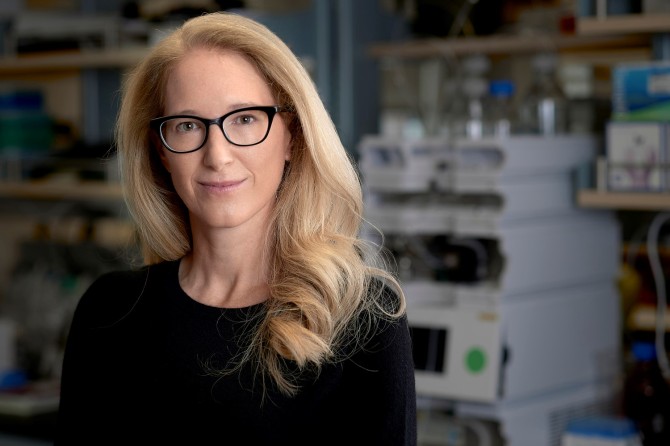News directly from Cornell's colleges and centers
Veterinarian ecologist to bolster pandemic prevention efforts
By Krisy Gashler
Raina Plowright, a world-renowned ecologist and epidemiologist who studies the mechanisms that drive the spillover of pathogens between species – such as the virus that caused the COVID-19 pandemic – will join the College of Veterinary Medicine (CVM) and become a Cornell Atkinson Scholar on May 16. Plowright will be a professor in CVM’s new Department of Public and Ecosystem Health.
Currently a professor at Montana State University, Plowright and her colleagues have studied how pathogens jump from animals to humans, a process called zoonotic spillover. Her research involves field studies in multiple countries as well as lab and modeling analyses to understand the mechanisms that drive zoonotic spillover. Her transdisciplinary work demonstrates that preserving and restoring wildlife habitats can stop pathogen spillover by minimizing contact between infected wildlife and potentially susceptible livestock or human hosts.
“Plowright has a strong commitment to leading international research teams that drive positive impacts on practices and policies that reduce disease emergence,” said David Lodge, the Francis J. DiSalvo director of the Cornell Atkinson Center for Sustainability. “She embodies the mission of Cornell Atkinson. Her work with governments and other organizations is key to moving knowledge to impact, and we are excited to support that work.”
Plowright’s appointment is the third faculty hire by the Sustainability Task Force, a multi-college effort led by Cornell Atkinson as part of the provost’s Sustainability Radical Collaboration initiative. The initiative supports scholars who are taking transdisciplinary approaches to address society’s most complex and pressing challenges.
Initially trained as a veterinarian, Plowright worked for several years with domestic and wild animals, including penguins and seals in Antarctica. She then earned a master’s degree in epidemiology and a doctorate in ecology.
Plowright’s research involves understanding how environmental and land-use changes drive pathogen spillover and identifying critical pinch points where intervention efforts can help prevent future pandemics. For example, one current research project in Bangladesh and Plowright’s native Australia seeks to prevent the spillover of Henipaviruses, which can spread from bats to humans. Preserving bat habitat supports the many ecosystem services bats provide – including pollination, seed dispersal and insect control – while also supporting human health. As bats lose habitat, they are driven further into human-occupied areas, increasing the risk of bat viruses spilling over into new species.
“Everything we’re advising to prevent pandemics also preserves biodiversity and helps mitigate climate change,” Plowright said. “I didn't seek out questions on environmental change, but as I started working on wildlife infectious diseases at the population scale, it became obvious that environmental change was driving the patterns of infections and spillovers we observed.”
Lorin D. Warnick, dean of the College of Veterinary Medicine, said he’s excited to welcome Plowright as a new professor.
“Her expertise in epidemiology, ecology and veterinary medicine are an ideal fit for our college, and she will be a strong addition to collaborative research at Cornell on the role of animal populations in emerging human diseases.”
Plowright said she’s inspired by Cornell’s commitment ‘to do the greatest good’ and to make a positive difference as the ‘land grant university to the world.’
“As an institution, Cornell is excited about addressing big, complex societal problems,” she said. "It embraces the idea of transdisciplinary methodology and it provides the research and administrative support necessary to actually make those partnerships work.”
Krisy Gashler is a freelance writer for Cornell Atkinson.
Media Contact
Get Cornell news delivered right to your inbox.
Subscribe

